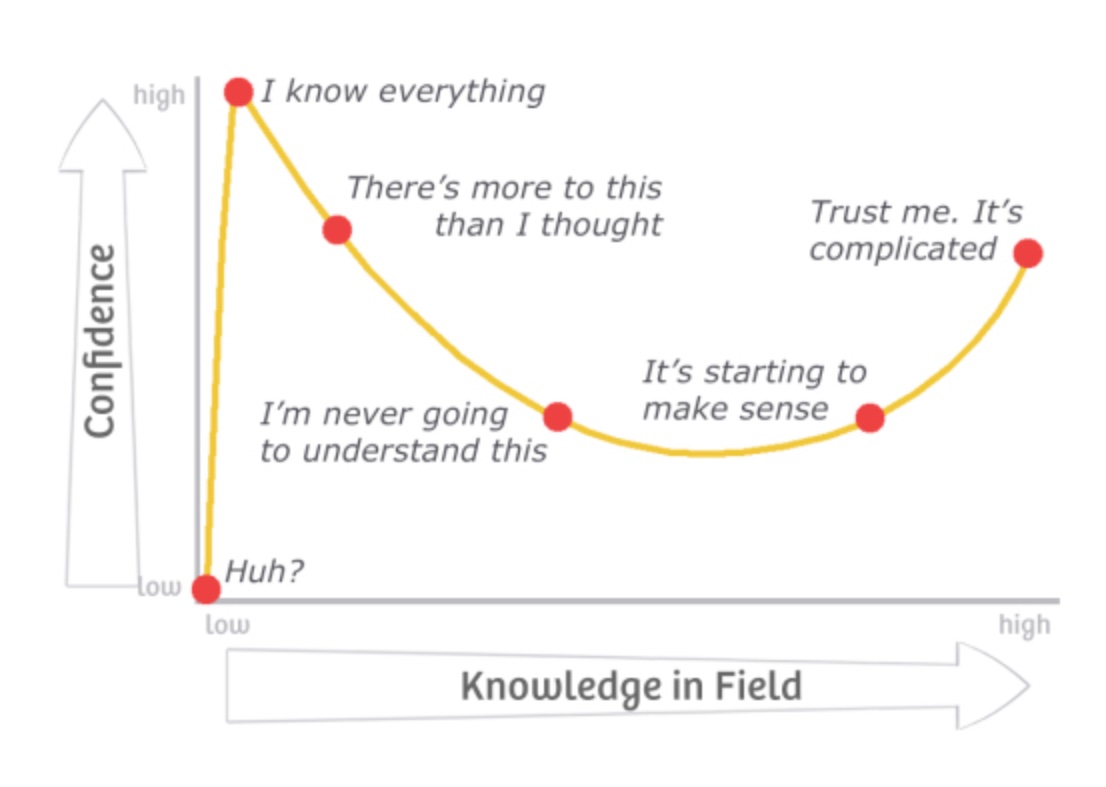I'm not trying to be a spear chucker here. We just have different views of benefits of certain technologies. Seems both views and and others should be represented in this thread.
You seem to show no insight into
current AI even though I've provided you with a short video you could have watched in post #103. Perhaps the following is relevant - the Dunning-Kruger effect:
Yes you have a lot of experience with some types of AI but I'm talking about a different type of AI - deep learning.... you seem to have little knowledge but extremely high confidence in your knowledge
When one is restricted in observing level of detail it can cover a lot of falsehoods.
In computer games if something is only taking up a few pixels then it could be based on a few hundred or thousand polygons. If you went in for a closer look it would use far more polygons so the viewer would be unable to tell that the polygon count was originally reduced. Your sentence doesn't seem to involve understanding of the principles of LOD.
When exactly was your example of A/C tail data for R&M?
1998. or in my world yesterday.
Don't you realise that repeatedly bringing up examples from more than 20 years ago isn't very relevant to technology that has only been around a couple of years? (e.g. see post #100 and #103) In the past 20 years computers have become more than a thousand times more powerful.... affordable graphics cards can have thousands of GPU cores.... and they'd go far beyond that in the future. Also machine learning can make a huge difference (e.g. a few milliseconds vs a couple of minutes in post #107).
On the topic of AI from 1997...
https://en.wikipedia.org/wiki/Deep_Blue_(chess_computer)
Deep Blue beat Kasparov mainly using "brute force" - by looking many moves ahead to see many of the possibilities.
https://ai.googleblog.com/2016/01/alphago-mastering-ancient-game-of-go.html
"But as simple as the rules are, Go is a game of profound complexity. The search space in Go is vast -- more than a googol times larger than chess (a number greater than there are atoms in the universe!)"
i.e. AI had fundamentally changed....
Yes. PACMAN simulation can benefit from advancing technology. Point is that technology can only be expected to advance so far before the rules of the game change. YANO. Cicero had his thoughts, Ptolemy, had his thoughts, Copernicus had his thoughts, Newton had his thoughts Einstein had his thoughts. Then came the statisticians.
Well there is a lot of promise with quantum computers.... are you saying that you don't think that there will ever be a point that a simulation can be made that is indistinguishable from reality? Elon Musk who is an engineer worth about $100 billion would disagree and he is an expert in
current AI and brain computer interfaces, etc.


